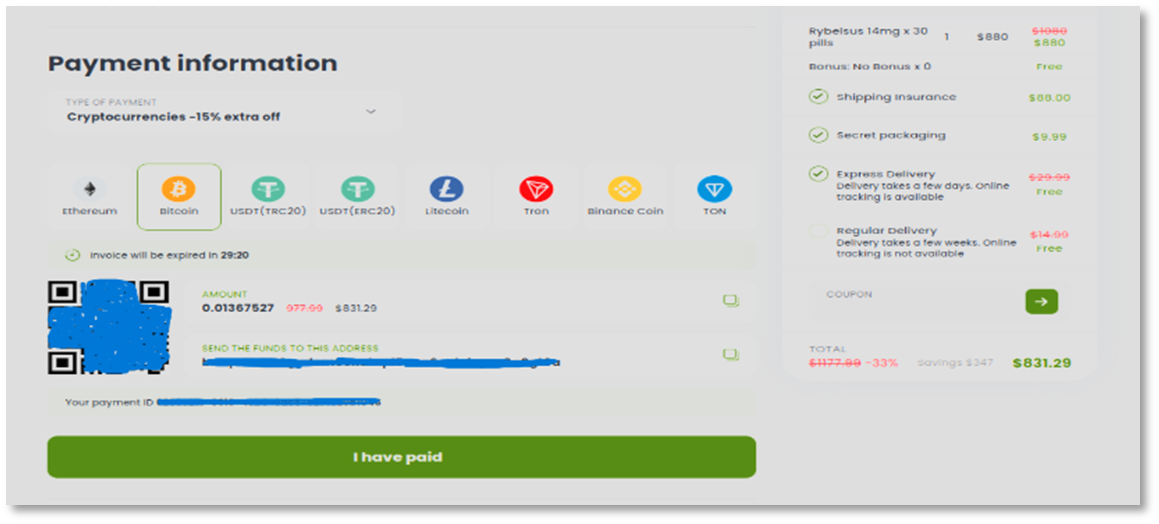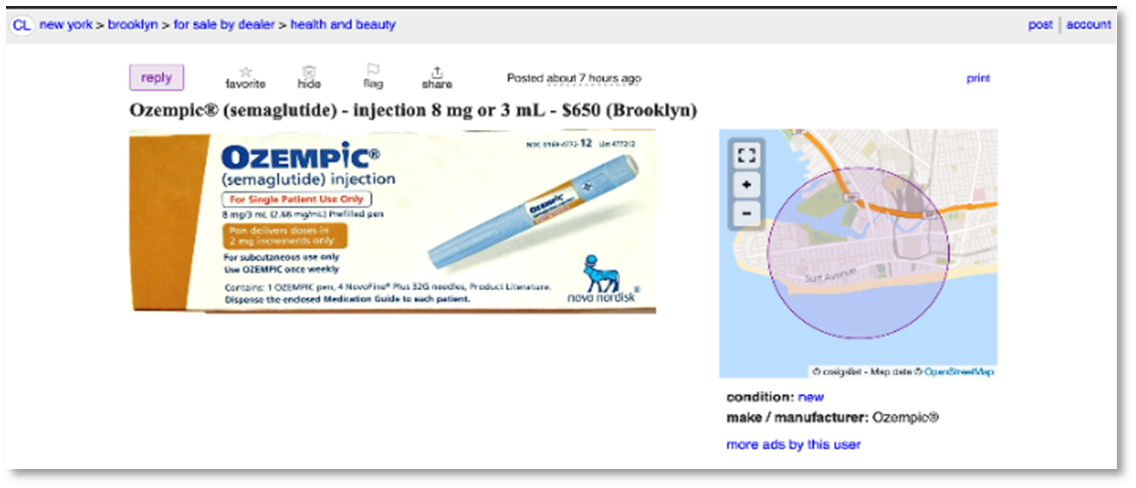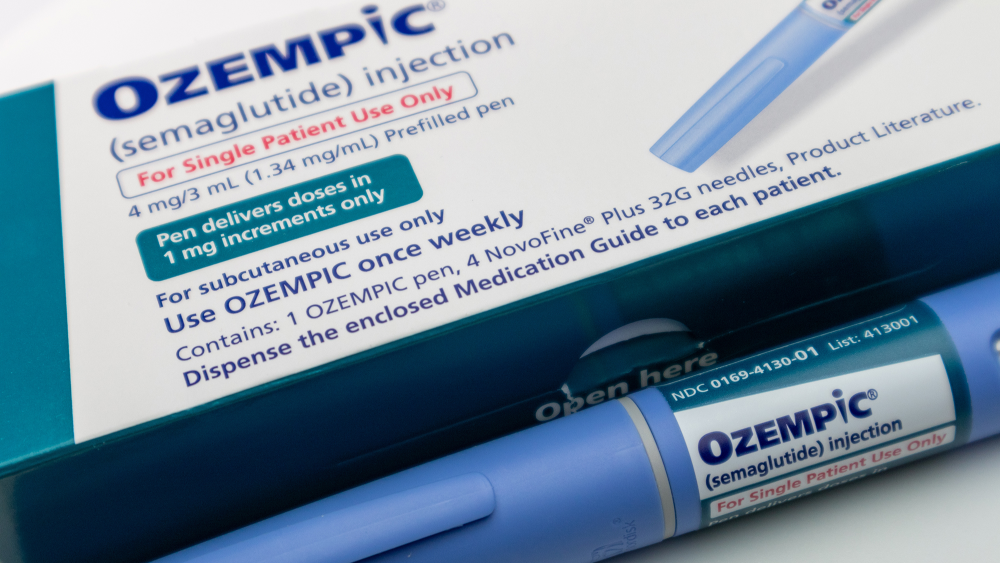As pharmacies each week fill more than one million prescriptions for Ozempic and other GLP-1 weight loss drugs, scammers are cashing in on the demand. Findings from our Threat Research Team reveal a sharp surge in Ozempic and weight loss scams online.
Any time money and scarcity meet online, you’ll find scammers. That’s what we have here with Ozempic and weight loss scams.
Doctors have prescribed GLP-1 drugs to treat diabetes for nearly two decades. Demand spiked with the U.S. Food and Drug Administration’s (FDA) approval of several GLP-1 drugs for weight loss.
Now, what was a $500 million market for the drug in 2020 stands to clear more than $7.5 billion in 2024.[i] As a result, these drugs are tough to come by as pharmaceutical companies struggle to keep up.
Ozempic scams abound across the internet, phones, and social media
McAfee’s Threat Research Team uncovered just how prolific these weight-loss scams have become. Malicious websites, scam emails and texts, posts on social media, and marketplace listings all round out the mix.
- In the first four months of 2024, malicious phishing attempts centered around Ozempic, Wegovy, and Semaglutide increased 183% compared to October through December 2023.
- McAfee researchers further discovered 449 risky website URLs and 176,871 dangerous phishing attempts centered around these drugs.
- On Facebook, scammers impersonate doctors based outside of the U.S. These phony accounts promise Ozempic and other drugs without a prescription.
- Other scammers have taken to Craigslist and similar marketplaces. In just one day in April, McAfee researchers identified 207 scam postings for Ozempic.
Across all these scams, they offer to accept payment through Bitcoin, Zelle, Venmo, and Cash App. All are non-standard payment methods for prescription drugs and are certain red flags for scams.

Example of a scam website
Also common to these scams: a discount. McAfee researchers discovered several scams that offered bogus drugs at a discount if victims paid in cryptocurrency. Others offered them at greatly reduced prices, well under the $1,000 per dose — the legitimate drug’s cost.

Bogus Craigslist ad
As with so many scams, you can file these Ozempic and weight loss scams under “Too Good To Be True.” Steep discounts and offers to purchase the drugs without a prescription are sure-fire signs of a scam. And with this scam comes significant risks.
What happens when you fall for an Ozempic or weight loss scam
These scams can rip you off, harm your health, or both.
In many instances, these scams never deliver. Anything at all. The scam sites simply pocket the money in return for nothing. Further, many steal personal and financial info to commit identity theft down the road.
In some cases, scammers do indeed deliver. Yet instead of receiving an injection pen with the proper drug, scammers send EpiPens loaded with allergy medication, insulin pens, or pens loaded with a saline solution.
One scam victim shared her story with us after she got scammed with a phony pen:
“I started using Ozempic in February 2023, as part of managing my diabetes. At first, it was reliably in stock but when it got more popular a few months later, stock got really low.
Around September, it got really hard to find Ozempic in stock and there was about a month and a half when my mom and I couldn’t find it at all. I mentioned it to a co-worker, who said she had a friend selling it. I was skeptical but did know her friend was connected to the medical industry and the price was only slightly higher than what I’d been paying. It didn’t sound outrageous, so I decided we’d try it. I got the product and gave her the money.
When we opened the box up, it didn’t look or feel right. The packaging felt flimsy and the pen looked quite different from the one we had been using. My mom inspected it and immediately noticed something was wrong. I took photos and videos and with my doctor’s help, we got in touch with a rep [from the legitimate pharma company], who confirmed it was fake. It wasn’t Ozempic, it was an insulin pen.
Realizing that I’d almost injected myself with the wrong substance, thinking it was Ozempic, was terrifying and could have been fatal. It’s really scary to think about what could have happened if we hadn’t done a careful double-check.”
This story frames exactly what’s at stake with Ozempic and weight loss scams. Unlike the bulk of online scams out there, these scams can lead to physical harm — which makes the need to avoid them that much more urgent.
How to avoid Ozempic and weight loss scams online
Remember, buying Ozempic or similar drugs without a prescription is illegal. That makes selling these drugs on social media like Facebook Marketplace, Craigslist, or other related sites illegal as well. Further, watch out for foreign pharmacies and sites you’re not familiar with. Per the FDA, they might sell drugs unapproved by the FDA. Likewise, they might be phony.
Only buy from reputable pharmacies. You can check a pharmacy’s license through your state board of pharmacy (this link from the FDA can help you track that down). If the pharmacy you’re considering isn’t listed, don’t use it. Also, make sure it has a phone number and physical address in the U.S.
Watch out for unreasonably low prices. Once again, if an offer is too good to be true, it probably is. In addition, never use a digital wallet app, bitcoin, prepaid debit cards, or wire funds to pay for your prescription. PayPal, Apple Pay, or a credit card payment are typical options for legitimate pharmacies.
Keep an eye out for website errors and missing product details. Scam websites typically lack verifiable product info. Pay attention to and read the fine print. Look for product batch numbers, expiration dates, or manufacturer details to confirm what you’re purchasing is legit. Other sites fail the eye test, as they look poorly designed and have grammar issues.

A poorly written scam on social media…
Look for misleading claims. If any drug offers rapid weight loss or miracle cures, be on guard. Purchasing counterfeit Ozempic poses significant health risks, including exposure to harmful substances, incorrect dosages, and lack of therapeutic effects. In addition to financial loss, you can experience adverse reactions or worsening of your condition by purchasing ineffective or counterfeit medications.
Consider AI-powered scam text protection. Text Scam Detector uses AI to detect and block dangerous links that scammers drop into emails, text messages, and social media messages. Additionally, McAfee Web Protection detects and blocks links to scam sites that crop up in search and while browsing.
Stay vigilant. Scammers create fake profiles across social media channels. Do not blindly trust sellers on Telegram, Craigslist, Facebook, TikTok. Many scammers are using these to run their operations. Don’t believe testimonials either! Scammers use fake testimonials to build trust.
The cost of Ozempic and weight loss scams
Truly, these scams can cause great harm. They can take a toll on your finances and your health. The good news here is that you can avoid them entirely.
This stands as a good reminder…when something gets popular and scarce, it spawns scams. That’s what we’re seeing with these in-demand drugs. And it’s just as we’ve seen before with popular toys around the holidays and even rental cars during peak periods of travel. Where there’s a combination of urgency, need, and money, your chances of stumbling across a scam increase.
[i] https://www.jpmorgan.com/insights/global-research/current-events/obesity-drugs













